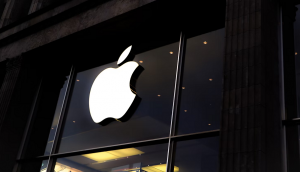Are Mobile Malware Threats Actually Real?
![]() With the boom of mobile devices there is also an increase in malware attacks — according to several reports. The latest Juniper Networks report states that since July 2011, Android malware increased by 472%, partly because creating malicious apps for the Android platform is as easy as paying $25.
With the boom of mobile devices there is also an increase in malware attacks — according to several reports. The latest Juniper Networks report states that since July 2011, Android malware increased by 472%, partly because creating malicious apps for the Android platform is as easy as paying $25.
“We have since seen exponential grow in Android malware over the last several months. The Juniper Global Threat Center found that the months of October and November are shaping up to see the fastest growth in Android malware discovery in the history of the platform. The number of malware samples identified in September increased by 28% over the number of the known Android malware samples. October showed a 110% increase in malware sample collection over the previous month and a striking 171% increase from what had been collected up to July 2011,” stated the report.
Though the report focused mainly on Android flaws, the report also discussed that iOS devices aren’t all that secure either. The report just reiterates the fact that more people are using Android devices, gaining the attention of malware creators.
In an interview with SecurityNewsDaily, Tim Armstrong, malware researcher for the anti-virus firm Kaspersky Lab stated that,”Android malware is growing at an exponential rate, but until a large and significant user base is affected by malware, I fear we won’t see any major changes in user behavior.”
Another report by AV-Test, an independent IT security institute, scrutinizes the effectivity of paid and free security apps. According to the study, Zoner AntiVirus Free was able to detect 32% of the malware, while the top paid security apps from Kaspersky and F-Secure were able to detect 50% of malware, which are already in active state.
If you’re a Fandroid, before you panic and start buying or installing security apps on your mobile device, I heed you to read on.
According to a blog post by Chris DiBona, Google Open Source Programs Manager, people should not buy into all the security apps hype that certain companies are trying to sell consumers because we don’t need it, and our devices don’t need it.
![]() Here are a few excerpts from DiBona’s blog post:
Here are a few excerpts from DiBona’s blog post:
“Open source, which as you know is present in a major way in all three major mobile phone operating systems (android, ios, rim) is software, and software can be insecure. I would posit that popular open source software only gets to become that popular if they pay close attention to security and respond to users concerns about the same, otherwise other projects come to the fore.”
“No major cell phone has a ‘virus’ problem in the traditional sense that windows and some mac machines have seen. There have been some little things, but they haven’t gotten very far due to the user sandboxing models and the nature of the underlying kernels.”
“Yes, virus companies are playing on your fears to try to sell you bs protection software for Android, RIM and IOS. They are charlatans and scammers. IF you work for a company selling virus protection for android, rim or IOS you should be ashamed of yourself.”
“If you read an analyst report about ‘viruses’ infecting ios, android or rim, you now know that analyst firm is not honest and is staffed with charlatans. There is probably an exception, but extraordinary claims need extraordinary evidence,” a comment probably directed to the latest Juniper report.
“If you read a report from a vendor that trys to sell you something based on protecting android, rim or ios from viruses they are also likely as not to be scammers and charlatans,” a comment most likely pertaining to Kaspersky.
There are three ways to approach this information: 1) your mobile device is a small computer and like any computer it needs an anti-virus to protect your system so you should install the recommended security software; 2) all these malware hype is just a marketing strategy made by companies involved in making security apps or programs to increase their revenue; or 3) Google and Android is just covering their rear ends because they don’t want to admit that their system is flawed.
There’s nothing wrong if you want to install these security apps, as long as they are legit apps from legit security companies. As the saying goes, ‘An ounce of prevention is better than a pound of cure.’
A message from John Furrier, co-founder of SiliconANGLE:
Your vote of support is important to us and it helps us keep the content FREE.
One click below supports our mission to provide free, deep, and relevant content.
Join our community on YouTube
Join the community that includes more than 15,000 #CubeAlumni experts, including Amazon.com CEO Andy Jassy, Dell Technologies founder and CEO Michael Dell, Intel CEO Pat Gelsinger, and many more luminaries and experts.
THANK YOU









